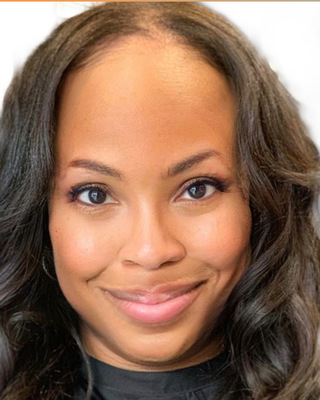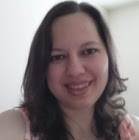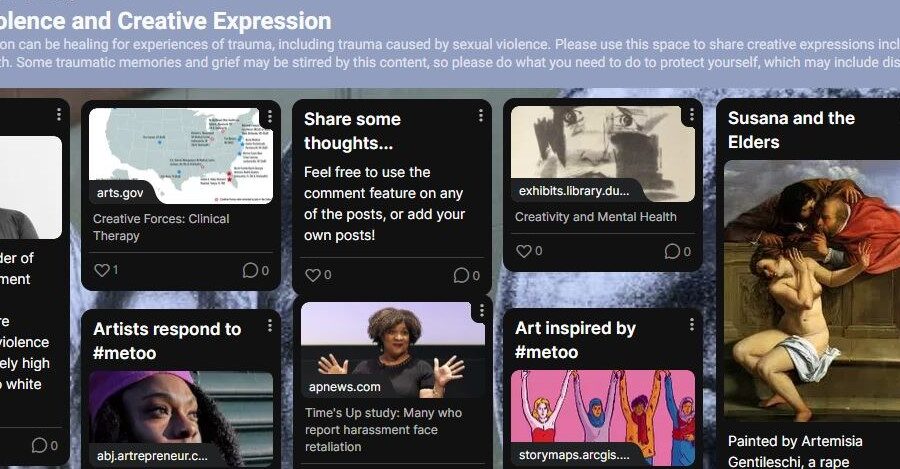Emerging from the increased demands for dismantling oppressive systems of racism, patriarchy, and colonization, the Clinical Mental Health Counseling (CMHC) department at Antioch University New England is taking steps to decolonize its curriculum. In the past year, the Clinical Mental Health Department formed a Social Justice Pedagogy Committee, Dr. Devona Stalnaker-Shofner, Dr. Syntia Santos Dietz, Dr. Amy Morrison, Dr. Deb Smith, and Dr. Cathy Lounsbury, to compile resources and examine best practices in social justice pedagogy, particularly those being integrated into the field of counselor education. Founded on the acknowledgment that much of the field of counseling is based on eurocentric ideas of human development and thriving, the members of the Social Justice Pedagogy Committee, Program Director Ali Corey, and other CMHC faculty are committed to reconstructing the program with an entirely new, socially just and equitable framework through a three-year social justice plan of action.

As many counselor educators search for ways to innovate and revitalize curricula and practices, the Antioch CMHC program is being recognized as a model for this transformation. Recently, members of the CMHC Social Justice Pedagogy Committee presented on their plan at the 2021 conference of the Association for Humanistic Counseling (ACH), an organization of counseling professionals bonded by the common philosophy of working to empower, advocate, and make a difference in clients’ lives. “Like many people, when faced with the horrific and senseless deaths of Ahmaud Arbery, Breonna Taylor, Rayshard Brooks, and most notably, the graphically violent murder of George Floyd, like many of you, I found myself asking not only, “why is this happening?” but the more important question of, “what can I do?” says Dr. Devona Stalnaker-Shofner. “I was angry, and I felt powerless and immobilized. How could I make a meaningful impact and effectuate social change as a part of this movement for social justice?”

Dr. Syntia Santos Dietz points out that systems of oppression are all around us in education, healthcare, government, etc., positioned to affect each of us on a daily basis. “We have spent very intentional time getting to know each other, our stories, and our thoughts around social justice,” she says of the early stages of committee work. “We have also been very aware that racism, social injustice, White supremacy, and the suffering of historically marginalized communities are a reality, happen everywhere at different degrees, and hinder people’s lives. My own experiences and the stories of others from historically marginalized backgrounds have also been strong reasons for my commitment to this work.”
CRT, RCT, and the Insidiousness Nature of Racist-Colonialist Ideology
Antioch University is known for being an exceptionally progressive, liberal, inclusive institution; the social justice aspect of its philosophy and mission is a draw for the majority of students and faculty. The formation of the Social Justice Pedagogy Committee acknowledges the systemic nature of racism in the United States even in spheres that have always aimed for equity. Ubiquitous and seldom adequately confronted, entangling even the very best-intentioned aspects of society decades after the Civil Rights Movement, more than one hundred and fifty years after the Emancipation Proclamation, and two hundred and forty-five years after the Declaration of Independence, inequity rooted in racist-colonialist ideologies still abound. This acknowledgment that even the best intentions can be muddied by assumptions rooted in historical injustices is one step forward towards positive change.
It’s clear there’s still a long road ahead to a truly equitable, just society. In the wake of high-profile crimes against Black lives by police, the Black Lives Matter movement finally succeeded in amplifying the issue of systemic racism to the point it can longer be ignored by the mainstream. Many institutions and individuals are responding by examining their inherent biases and privileges and questioning and dismantling faulty frameworks rooted in colonial ideals. At AUNE, the CMHC program applies this action by examining all aspects of their counseling curriculum with the goal of shedding problematic aspects and reframing it from a multicultural and inclusive perspective. “We have begun to incorporate Critical Race Theory (CRT) into our curriculum and courses,” says Dr. Stalnaker-Shofner. “CRT is a theoretical and interpretive model that examines the appearance of race and racism across dominant cultural modes of expression. CRT can be the lens through which the impact of race and racism in counseling and other helping services can be viewed in order to develop cultural awareness, humility, and compassionate and effective counseling practices.”
“In addition to CRT, we have also discussed Relational Cultural Theory as a foundation,” says Dr. Santos Dietz. “Many of us view RCT concepts as paramount to our work as counselors and counselor educators. RCT is founded on the belief that relationships and genuine connections are part of our humanity and are critical for growth and development. It focuses on relationships, highlighting the importance of developing growth-fostering relationships in which each member has opportunities to grow.”
Through an understanding of CRT and RCT educators and professionals are encouraged to ask questions such as What is the significance of race in contemporary American society? How do issues around race and ethnicity play out in dominant culture? CRT highlights the importance of all members of American society experiencing equal representation and having access to fundamental rights such as compassionate counseling resources, and that professionals find ways to address and respond to the experiences of individuals who have experienced racism in counseling.
Mental Health Traditions and Adapting to Changing Needs
While clinical mental health curriculum in the US tends to be eurocentric, the roots of psychotherapy and mental health counseling practices are multicultural and ancient. Ancient Greek and Eastern philosopher/ physician, Abu Bakr Mohammed ibn Zakariya al-Razi, a physician born in the 9th century, was the director of a large hospital in Baghdad where he established the first known “ward” specifically for the treatment of the mentally ill. al-Razi’s discharge procedure included providing each patient with money to help with their immediate needs as they reintegrated into society after treatment. “This was the first recorded reference to psychiatric aftercare and, perhaps, to the existence of a psychiatric consultation service in a general hospital,” states an article on al-Razi in The American Journal of Psychiatry. Mental health counseling traditions around the globe have evolved differently, growing out of each society’s perspectives on health and wellness. Many approaches retain roots in ancient systems and values. For example, in Japan, clinical psychology has developed as an integrative socially-orientated counseling methodology. In India, it has developed out of a combination of traditional metaphysical and ayurvedic systems and Western methodologies. Approaches have also demonstrated adaptability – changing based on society’s circumstantial needs. After World War II, mental health treatment shifted from a primarily analytical and diagnostic approach to a more therapeutic system based on the needs of veterans returning from war. This historically demonstrated adaptability and variety are encouraging as professionals re-imagine the future of the field in the U.S.
Step by Step
The monumental task of decolonizing their program requires a step by step approach and program-wide participation. “We have buy-in from the faculty who share our commitment to social justice and infusing best practices with respect to advocacy and social change in our pedagogy and curriculum,” says Dr. Stalnaker-Shofner. As a group, the committee first identified crucial focus areas for the process, which include Anti-Oppression, Anti Racism, Multicultural Competence, and Social Justice Advocacy. Faculty are expected to examine their curriculum through a critical lens to determine whether these areas are represented in their teachings. They’re also encouraged to consider how they are working to increase their understanding of marginalized narratives, consider alternate theories and models to elevate their curriculum (i.e. liberation psychologies, relational-cultural theory, critical race theory, etc.), increase knowledge of social justice pedagogies, and consider additional training opportunities.
Broader actions include starting a book club with the aim of digging into non-eurocentric thought and experience, the formation of “affinity groups” within the university to give students and faculty a space to come together and discuss relevant issues, including non-eurocentric readings and materials, and exploring alternate theoretical approaches.
One slide from their presentation, titled “Recommendations from the Committee”, provides an approach that is part philosophical jumping-off point, part practical application:
- Do your work
- Find kindred spirits and allies in the shared vision
- Express, value, and encourage authenticity, genuineness, and the space to be vulnerable and to share
- Be open to try new things and give yourself permission to make mistakes
- Listen to different perspectives
- Engage in personal and cultural humility (i.e. the ability to maintain an interpersonal stance that’s other-oriented in relation to aspects of cultural identity that are most important to the [person].
- Create space to learn about and practice de-centering whiteness
- Monitor and follow-up
In the presentation for AHC, the committee discussed challenges as well as the most meaningful moments of the process. Some of their efforts have been met with resistance, fear, and anxiety, as is understandable in the face of change. “Resistance is always present, especially in this work, just by the nature of having different people with different points of view,” points out Dr. Santos Dietz. But the results of working through challenges have been extremely rewarding, giving rise to allyship and connection. “This committee has been a wonderful space for me personally and professionally,” she continues. “The team in addition to our Department’s leaders have been critical to my ability to be myself, to share my opinions, and to be supported as a faculty of color, more specifically as a Latina in the U.S.”
“There has been some discussion about the concept of marginalization, and that this is not limited to race/ethnicity,” says Dr. Stalnaker-Shofner. “This is true, and yet [we are operating on the notion that] all of the “isms” that plague our society are rooted in white supremacy and patriarchy. Essentially if we address race and intersectionality, then we address all ‘isms.’”
Parsing out the challenges that naturally arise as the result of discussing a complex and embedded issue such as racism is part of the process. “There is no such thing as a single-issue struggle because we do not live single-issue lives,” Audre Lord said in her speech, Learning from the 60s, calling attention to issues of intersectionality in any fight for equality. From the process, new issues and information are inevitably brought to light. In America, racism and its host of companion inequities could be compared to a can of worms left too long in the sun. But the hope is that with fortitude and awareness, all needs can be met. Ultimately, the committee is experiencing the process of decolonization as hard, necessary, and long-overdue work that will provide a better learning and living environment for all.



